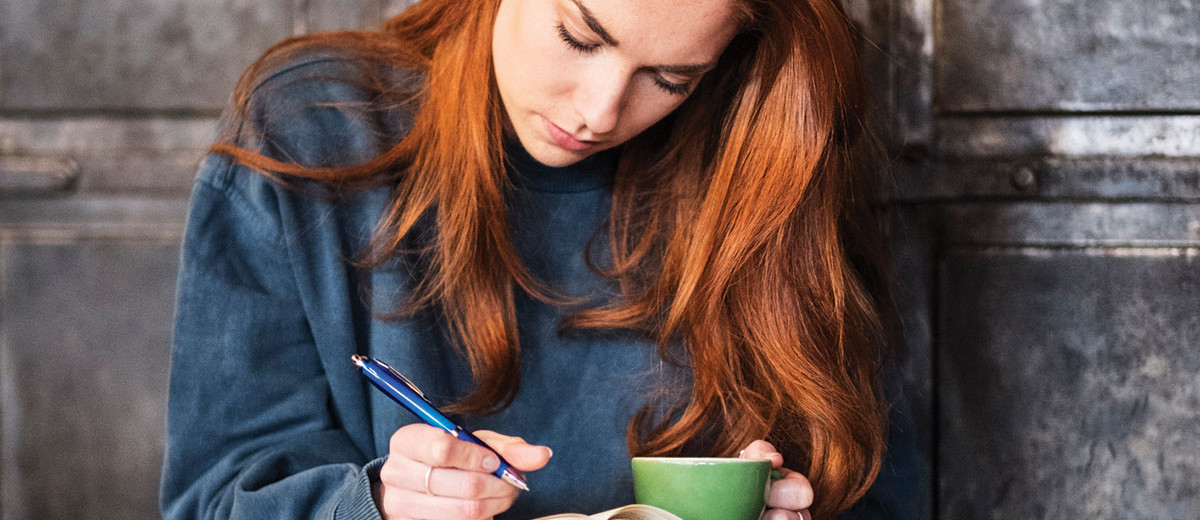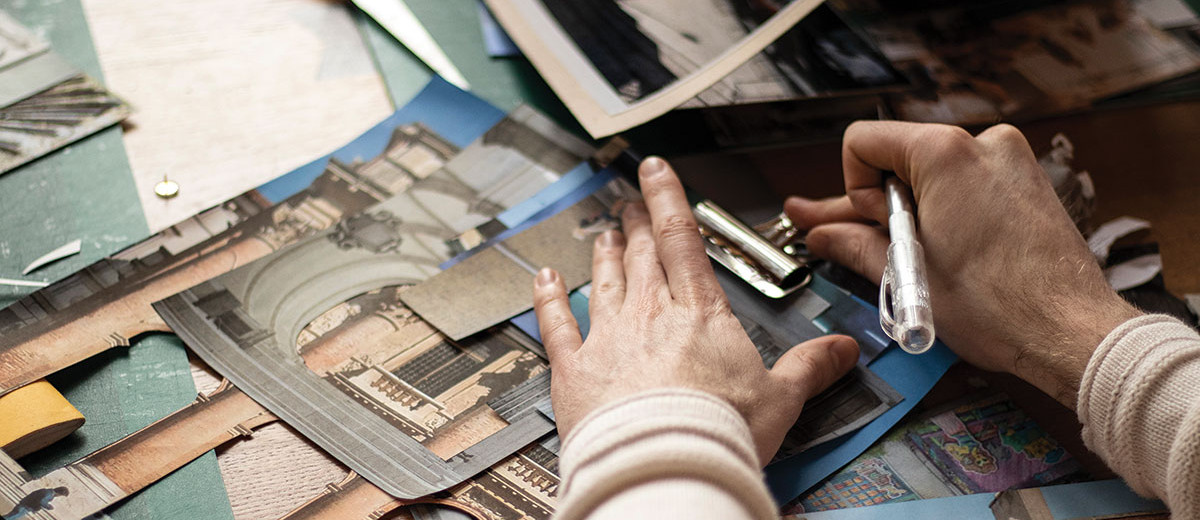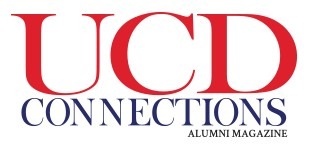COLLEGE OF SCIENCE
PRINCIPAL: Professor Joe Carthy, Principal, College of Science.
If you’re passing through the College of Science, you’re likely to hear the sound of music. We have a magnificent Steinway grand piano that students, staff and alumni from across the University play. Lunchtime and evening recitals are a regular occurrence, from classical string quartets by Ad Astra performing scholars to contemporary experimental performances by our sound artists and composers in residence. The UCD community choir began here and meets every Tuesday lunchtime to rehearse; always welcoming new singers, the choir is a core part of our open and inclusive culture of creativity.
Our University-wide Artists-in-Residence programme also began in this College and since its launch in 2012, we’ve hosted some of Ireland’s most esteemed painters, sculptors, performance artists, choreographers, composers and sound artists. Art workshops, modules, talks, performances and exhibitions are part of the holistic educational experience of our students and future scientists. Working across traditional disciplinary boundaries is crucial to the development of science: one of our key objectives is educating students in collaborative cross-disciplinary environments.
Advances in science have always been dependent on continuous questioning of accepted norms, leaps of imagination and the ability to make connections across multiple ways of thinking. The project EIRSAT-1 is one such example. A team of space science and engineering students, supported by industry partners and academic mentors are currently designing, building, launching and operating Ireland’s first satellite as part of the European Space Agency’s Fly Your Satellite programme. As well as making history in their field, these students are developing the creative and critical thinking skills that are highly sought after in industry.
The scale of research in this College is vast, so bringing people together from different areas of expertise and experience is crucial. This happens formally through research and learning but equally through encounters like our brown bag lunchtime talks, community gardening, tree tours, guided nature walks, science bake-offs and open studio days. The College of Science proudly supports initiatives where people can create and enjoy, reflect and converse, discuss and experiment, fail and be confident; activities core to living a creative life.
COLLEGE OF BUSINESS
PRINCIPAL: Professor Tony Brabazon, Principal, College of Business.
In the College of Business we seek to nurture creativity and the capacity to think in critical and solution-oriented ways. We love the opportunity to get students from different disciplines together in class, for example, engineers and business students in our module on Entrepreneurship in Practice led by Dr Orla Byrne. This year we will offer an Enterprise Internships Scholarship with NovaUCD and the Mont Kavanagh Trust.
Our MSc Bord Bia students are working with small firms, live in the market. Our new MSc Retail is about leadership and seeing opportunity in a rapidly changing sector. Too much learning is about “this is how things are done”. As a University, research, inquiry, critical thinking, problem solving, and discovery is in our DNA. It begins with curiosity and asking questions. As educators, a lot of our work is to help people unlearn and recover from rote learning.
We are also interested in responsible leadership and the connections between business, society and sustainability. The College recognises that some global challenges require not just creativity but also collaborative problem solving – bringing together people with different knowledge and skills. It is a hugely creative task to work together, and systems and tools can help. Sometimes the art of judgement and experience too quickly closes down creativity and the capacity to think differently. So we work with our students to deepen their capacity for hearing and being heard, and to see that collaboration itself is a creative act.
Students are required to make films, pitch ideas, debate from different perspectives, and work in teams to learn from each other, come up against different world views, systems and thoughts, and expand their collaboration capacity and field knowledge.

… we seek to nurture creativity and the capacity to think in critical and solution-oriented ways.
COLLEGE OF SOCIAL SCIENCES AND LAW
PRINCIPAL: Professor Colin Scott, Principal, College of Social Sciences and Law.
Research and education in the social sciences and cognate disciplines are often identified as having a scientific character, with application of rigorous methods to understanding social phenomena. However, the identification of problems to research and of ways to address these challenges has a strong creative dimension, as does the design of educational programmes best suited to fostering student learning.
With education, significant innovations in recent years have included a shift towards more experiential forms of learning, for example with modules in Law which seek to simulate aspects of negotiation, enforcement and litigation processes, putting students in the position of key actors within the legal system. In the new undergraduate Social Sciences programme, an ethos of “students as partners” seeks to engage students more fully in the co-creation of learning experiences, drawing on their own experience and creativity to enhance learning outcomes.
With research, we recognise increasingly that major societal challenges are typically not addressed by single disciplines and so we find ways to draw together researchers from a range of disciplines to address issues such as migration, sustainability and the growing importance of data. There is considerable creativity required to find common languages between disciplines in casting the research challenges and identifying the most suitable methods to better understand them.
Over the past four years, many researchers in the College have engaged with Artists-in-Residence, appointed annually, who work with researchers on creative ways of expressing some of the ideas found in the research. Our current artist Catherine Barragry makes sculpture, performance and immersive events that consider survival while migration has been a theme explored by previous incumbents.

Our college vision is “to lead the advancement of human, animal and environmental wellbeing for the benefit of society” through creative research …
COLLEGE OF HEALTH AND AGRICULTURAL SCIENCES
PRINCIPAL: Professor Cecily Kelleher, Principal, College of Health and Agricultural Sciences.
The College of Health and Agricultural Sciences brings UCD’s health professionals under one banner, providing a wide range of educational and research opportunities. Our College vision is “to lead the advancement of human, animal and environmental wellbeing for the benefit of society” through creative and groundbreaking research and education. One Health is a worldwide strategy to expand collaborations and communications in all aspects of healthcare for humans, animals and the environment. The College has professionals along every link of the One Health chain, a unique position in Ireland.
For example, the Systems Biology Ireland lab has been researching ways to treat cancer. This year we saw the development of models based on a person’s own biochemistry. The creative new model is integrated with a computer algorithm which can predict, to a fairly accurate degree, how an individual might respond to various treatments.
The College has also been creative in promoting awareness of important issues. In April, the “UCD Get Sun Smarter” event took place, led by Professor Desmond J Tobin, Director of the UCD Charles Institute of Dermatology. A UV light box gave people visiting the stand an indication of the sun damage to their face. Systems Biology Ireland also provided a microscopic demonstration of what skin cancer looks like up close. These creative initiatives had a positive impact on drawing people into the event and strongly engaged the public in discussion about skin damage and cancer prevention.
Students from the School of Agriculture and Food Science were involved in creating the extraordinarily innovative exhibit garden at the 2019 Bloom festival. The garden was titled “UCD History of the Irish Diet in Plants” and brought to life the story of the Irish diet from the early Irish settlers to the introduction of farming. The garden was divided into five sections based on societal developments that led to dramatic changes in the Irish diet. The plants in each section primarily reflect evidence from archaeological science, highlighting changing food choices in Ireland over several millennia.

Building on the deep creative heritage of UCD Arts and Humanities, “Engaged Creativity” seeks to develop a critical ecosystem …
COLLEGE OF ARTS AND HUMANITIES
PRINCIPAL: Professor Sarah Prescott, Principal, College of Arts and Humanities.
Creativity is one of UCD’s key values and is exemplified by many of the core arts subjects: music, literature, film, drama, and performance. The College of Arts and Humanities has ambitious plans for building on its excellence in cultural creativity and is working towards recognising research-based creative practice: composition, performance, directing and recording work as well as the work of colleagues in creative writing (for example, the recently appointed Professor of Fiction, Anne Enright). Building on the reputation and success of the masters programmes, creative writing was introduced as an undergraduate subject last year as part of the new four-year BA in Humanities. A creative-critical joint PhD programme is also being developed with our partner institution, the National College of Art and Design. The Arts and Humanities curriculum not only engages with cultural and artistic creativity and its practice but also develops students to be creative thinkers and problem solvers which will set them apart when they enter employment.
We are launching our “Engaged Creativity” research priority area with a series of workshops and interdisciplinary public lectures on the theme, “What is Creativity?”. Building on the deep creative heritage of UCD Arts and Humanities, the artistic energy of Dublin, and the international cultural reputation of Ireland, “Engaged Creativity” seeks to develop a critical ecosystem which intersects with government, English and Irish language media, business and industry through research, teaching, public impact and engagement. It builds on interest in creative practices as research among scholars and students across the college, in disciplines such as creative writing, literature, art, music, Irish language, film and drama.
This academic year we welcomed the first John Pollard Newman Fellow in Creativity, the poet Dr Julie Morrissy, who will deliver the inaugural lecture in the “What is Creativity?” series. A group of creative practitioners, including documentary makers, writers, filmmakers, film directors, composers, musicians, TV producers, actors, and festival directors will be affiliated to the College in September as Creative Fellows to work with faculty and students around the theme of creativity.

Many researchers in the College have engaged with Artists-in-Residence, appointed annually, to draw out creative ways of expressing some of the ideas found in research …
COLLEGE OF ENGINEERING AND ARCHITECTURE
PRINCIPAL: Professor Aoife Ahern, Principal, College of Engineering and Architecture.
Creativity is at the heart of what engineers and architects do. Therefore, in the College of Engineering and Architecture it is vitally important for us to engender a sense of creativity and a respect for creative design in our students of both engineering and architecture. As UCD engineers and architects, our graduates will be faced with helping to find solutions to many of the challenges faced by the world today – in relation to global warming, information technology and sustainability. It is only by tackling these challenges with imagination, creativity and new thinking that solutions can be found.
The programmes taught in the College incorporate creativity in many ways. For example, our first year students in Engineering take a module called Creativity in Design, where they work together in small teams to look at how to tackle problems in ways that are innovative; and they learn how to present those solutions using physical models, drawings and presentations. Our taught masters students take a module in Innovation Leadership, where they learn how to manage teams of first year students from the Creativity in Design module. In this way our masters students develop skills in leadership and communication.
In UCD Architecture, students engage in design studios where they present their designs to each other and to practicing architects. As time goes by, these designs and projects become ever more complex, offering students ample opportunity to demonstrate and develop their skills of creativity.

